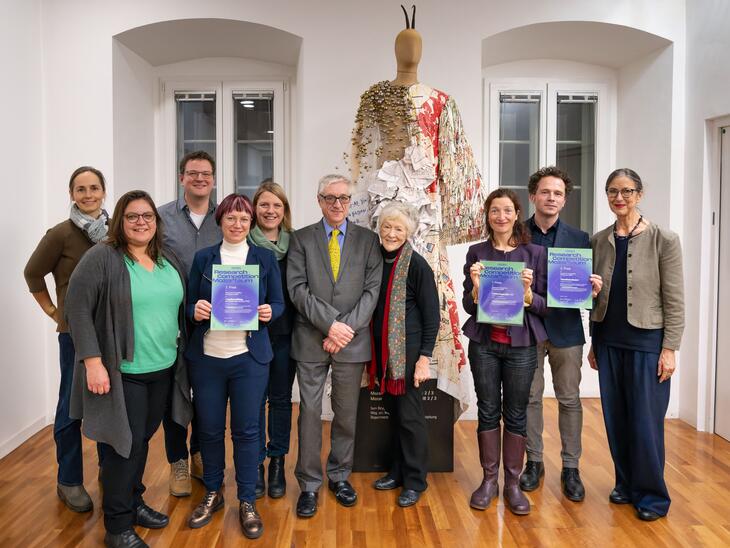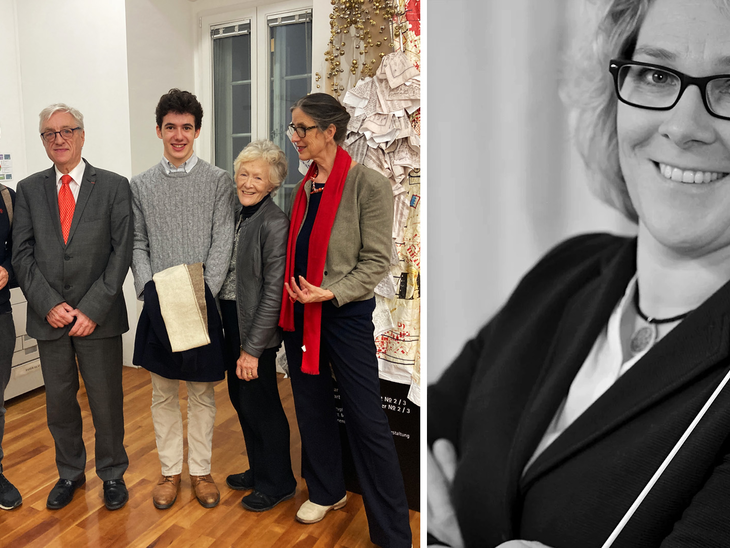What do blue-green algae, the Welte-Mignon reproduction piano, bus drivers in Bolzano, aesthetic incompetence and Salzburg pop culture at the end of the 20th century have in common?
That's right - they are all in the research interests of academic and artistic staff at the Mozarteum University in Salzburg and Innsbruck. All of these projects and many more (!) were submitted to the sixth edition of the Mozarteum Research Competition this year, with a record number of 21 - never before. Organised by the Research Management Department for the first time in 2019, the RCM is becoming increasingly popular and is often used to test the feasibility of one's own research ideas.
As in previous years, the aim of the RCM 2024 was to identify and recognise the best and most advanced applications.
- The first prize, endowed with 3,000 euros, goes to Dr Christian Sauer with his project ‘BioFacts. Living artworks and their posthuman agency’. His promising goal is a monograph that will focus on the diverse and growing field of bioart.
- The second prize goes ex aequo to Dr Patrick Schaudy for his transdisciplinary investigation of an ‘Aesthetics of Incompetence’ and to Dr Anamarija Batista for ‘Architect as Instrument Builder: Planning the Auditory Space’. Both applications will receive 2,000 euros each.
And: Maria Walcher and Verena Wisthaler were honoured for ‘My name is human’ in the ‘Collaborative Project’ category (1,000 euros), which was awarded for the first time this year.
Winning a prize and having an excellent achievement recognised with an award is a wonderful thing. But even more important is the fundamental support and further motivation that the RCM provides for all submitted projects! This is because every submission undergoes an initial review or feedback loop by a Critical Friend from within the organisation, selected by the Research Management department. Based on this initial feedback, the respective application was revised, refined and further developed over the summer. In the autumn and after the revision phase, the supreme discipline and the heart of the RCM followed: each individual application was read in detail, considered and commented on in a detailed report by the international jury - consisting of Dame Janet Ritterman and Prof. Michael Worton, top personalities in the European artistic and scientific research landscape.
These reviews were sent to the applicants in good time so that they had a good week to prepare for a discussion with the jury, which travels to Salzburg in person every year. Conversations, as Michael Worton calls them, not Q/A or test interviews: conversations in which the applicants can talk freely about their research ideas in order to be able to build on this dialogue and decisively develop their own research ideas. The Mozarteum's two successful applications to Austria's largest funding organisation for basic research, the Austrian Science Fund FWF, are ‘children’ of the RCM, i.e. were submitted to the RCM in an early form: Iris Laner's Aesthetic Judgement in Community and Gertrud Fischbacher's Nexus of Textile and Sound are thus particularly good testimonials for the increase in the probability of success for each project submitted to the RCM. But whether or not they hit the big time, as in these two cases with funding of almost half a million euros each, the important thing is to dispel any fears of submitting third-party funding and to awaken the desire to do research - and this is what the RCM has stood for since 2019.
This was also the case this year: at the award ceremony on 3 December, the focus was not only on ‘celebrating and researching’ but also on working together. The presentation of all 21 projects revealed unexpected synergies and connections between projects and the people behind them. Connections that will lead to new or strengthened research projects: Bonding over research at its best!
(Over the next few weeks, the RCM will be evaluated as a funding programme, including a large-scale survey of all applicants and Critical Friends: the results are expected at the beginning of the summer semester.)
We would like to congratulate the award winners and everyone who took part in the RCM 2024!












